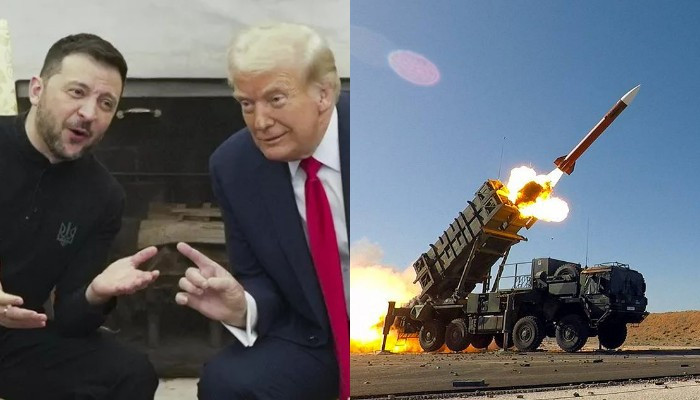Ukrainian President Volodymyr Zelensky has confirmed that a U.S.-made Patriot missile defense system, transferred to Ukraine via Israel, has been operational in the country for the past month. The announcement marks a significant development in Ukraine’s ongoing efforts to strengthen its air defenses amid continued Russian missile and drone attacks.
Speaking during a press briefing in Kyiv, Zelensky said that two additional Patriot systems are expected to arrive this fall, though he declined to disclose details about their exact deployment or locations.
“The Israeli [Patriot] system is operating in Ukraine. It has been operating for a month,” Zelensky stated. “Two more are on the way this autumn.”
Strategic Significance
The Patriot system, developed by the United States, is one of the most advanced surface-to-air missile platforms in the world, capable of intercepting a wide range of aerial threats, including ballistic missiles, cruise missiles, and aircraft. Its arrival is seen as a critical boost to Ukraine’s layered air defense network, especially as the country braces for an anticipated increase in Russian strikes during the winter months.
The operational battery in Ukraine is believed to be one of the decommissioned Israeli Patriot units that were returned to the U.S. for refurbishment earlier this year. Israeli officials had previously denied directly supplying the systems to Ukraine, citing logistical and policy constraints. Zelensky’s remarks now confirm that at least one of those systems has been transferred, refurbished, and deployed.
Israel’s Quiet Involvement
While Israel has maintained a cautious stance on supplying lethal aid to Ukraine, the transfer of the Patriot system—likely facilitated through U.S. channels—suggests a shift in policy or a unique exception. The Patriot batteries had been retired from active duty by the Israel Defense Forces (IDF) in favor of more advanced domestic systems like David’s Sling and Iron Dome.
The extent of Israel’s involvement in the refurbishment or delivery remains unclear. However, Zelensky’s use of the phrase “Israeli Patriot” has drawn attention, given that the systems themselves are manufactured in the United States.
Looking Ahead: More Defenses Incoming
According to Zelensky, Ukraine is expecting two more Patriot systems to be delivered and made operational later this fall. The systems are part of a broader Ukrainian strategy to fortify its critical infrastructure and urban centers against renewed Russian missile campaigns as temperatures drop and energy grids become more vulnerable.
Zelensky also confirmed that Ukraine recently submitted a fresh weapons request to the United States totaling approximately $90 billion. The list includes long-range precision weaponry, advanced drones, and additional air defense systems, underscoring Kyiv’s urgent focus on both deterrence and defense.
What Remains Unclear
While Zelensky’s confirmation is a landmark moment, several questions remain unanswered:
The precise location of the deployed Patriot system is undisclosed.
The configuration and operational readiness of the system are not publicly known.
It is unclear whether the two additional Patriot systems will be transferred via Israel, the U.S., or other NATO partners.
The deployment of a Patriot missile defense system — facilitated through Israel and the United States — marks a turning point in Ukraine’s air defense capabilities. As the war with Russia grinds on, Kyiv is increasingly leaning on advanced Western technology to shield its skies and citizens. With two more systems expected this fall, Ukraine appears poised to strengthen its ability to repel the types of aerial attacks that have devastated civilian infrastructure in past winters.
As Zelensky pushes for broader international support and longer-term security guarantees, this latest move sends a clear message: Ukraine is reinforcing its defenses and planning for a protracted fight.
Military analysts have speculated that the Patriot battery could be protecting high-value targets such as Kyiv, Dnipro, or western Ukrainian logistics hubs vital to military supply chains.








